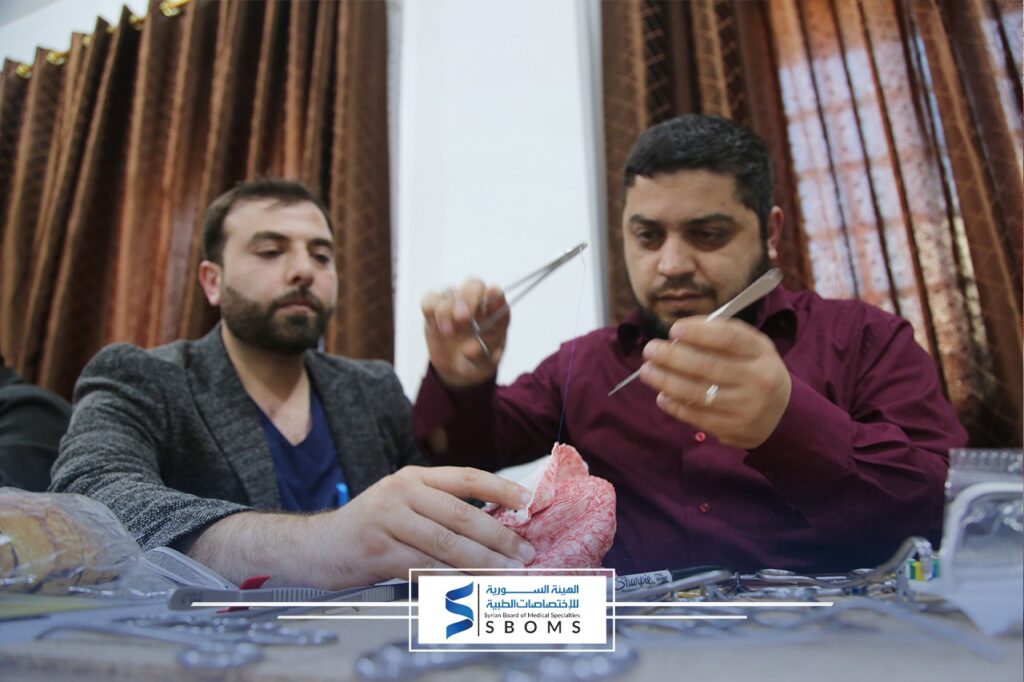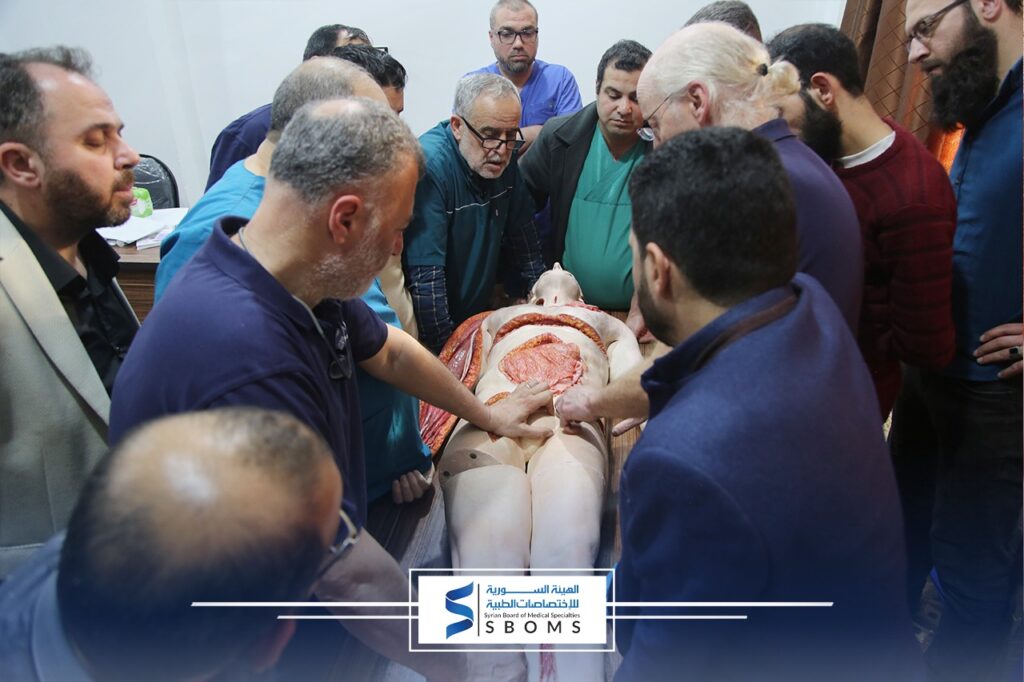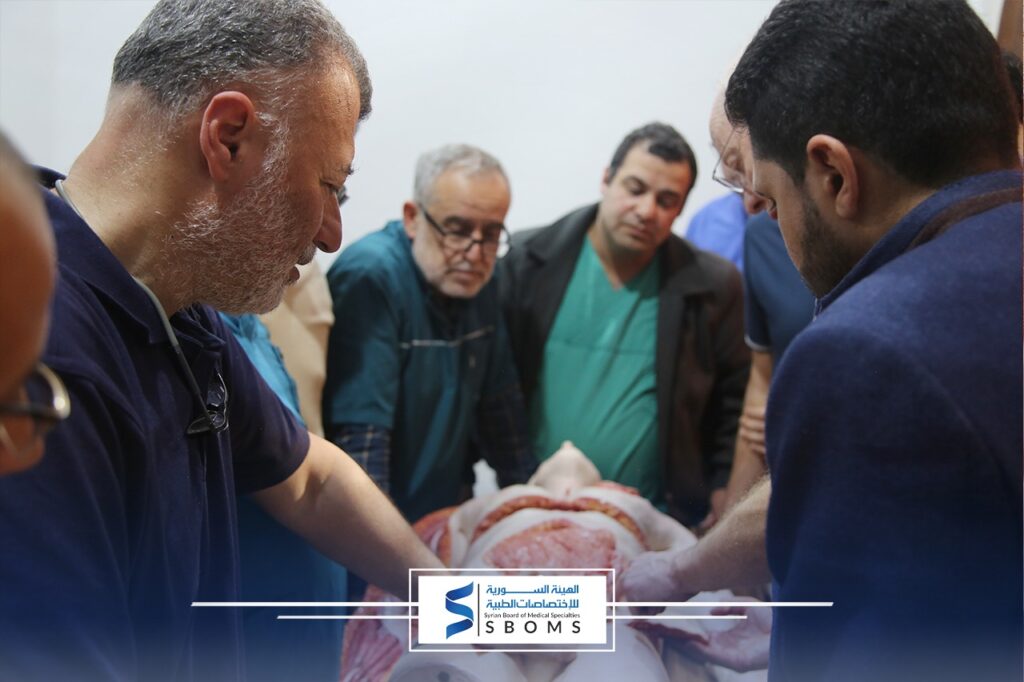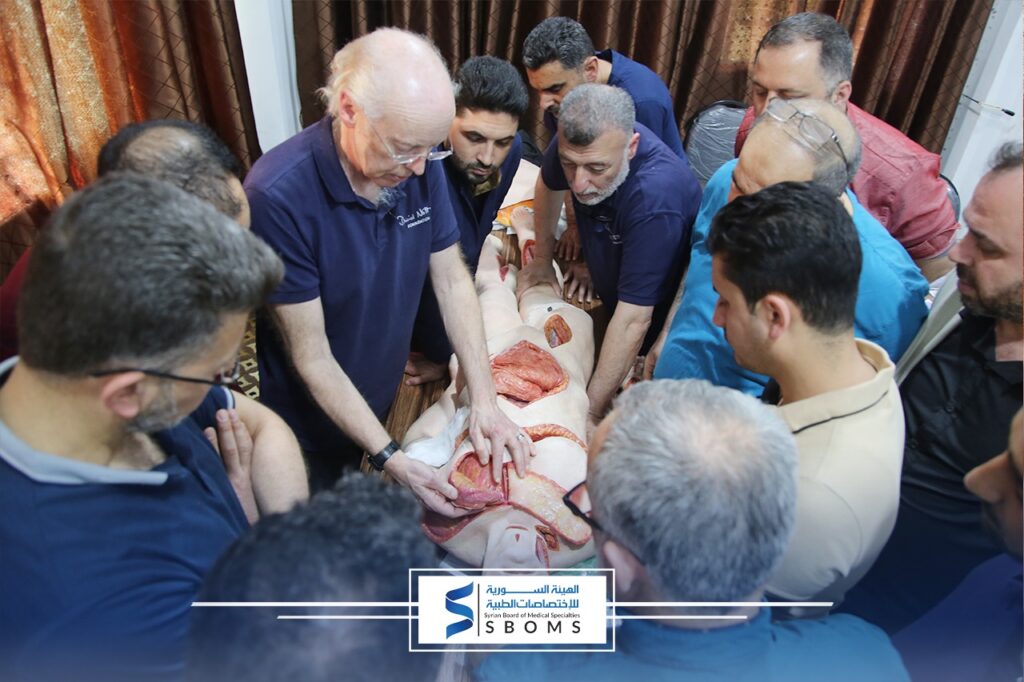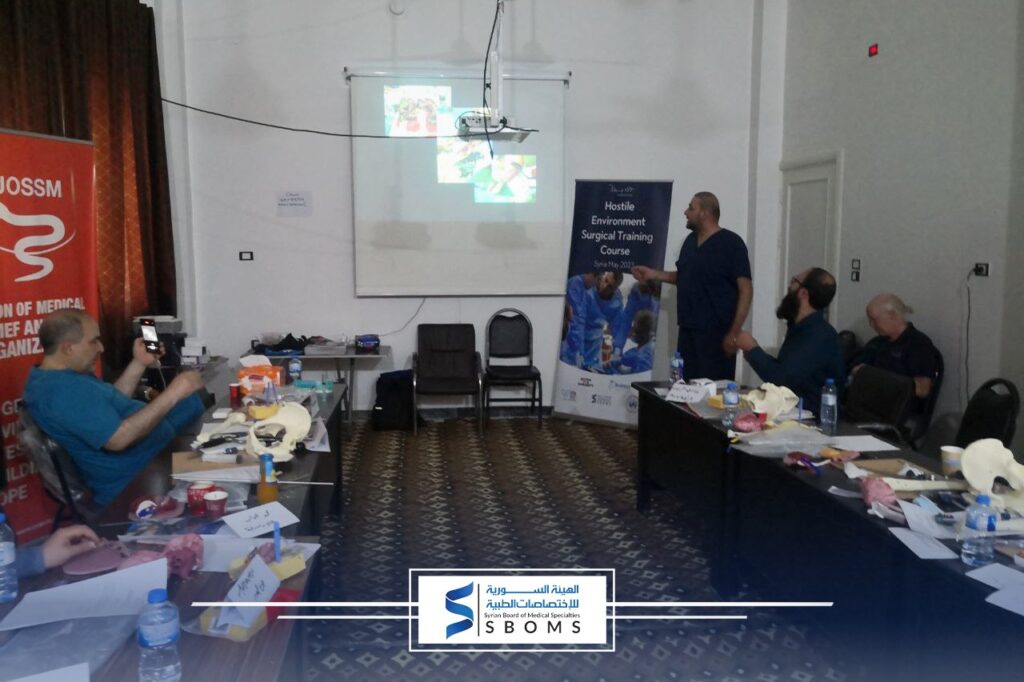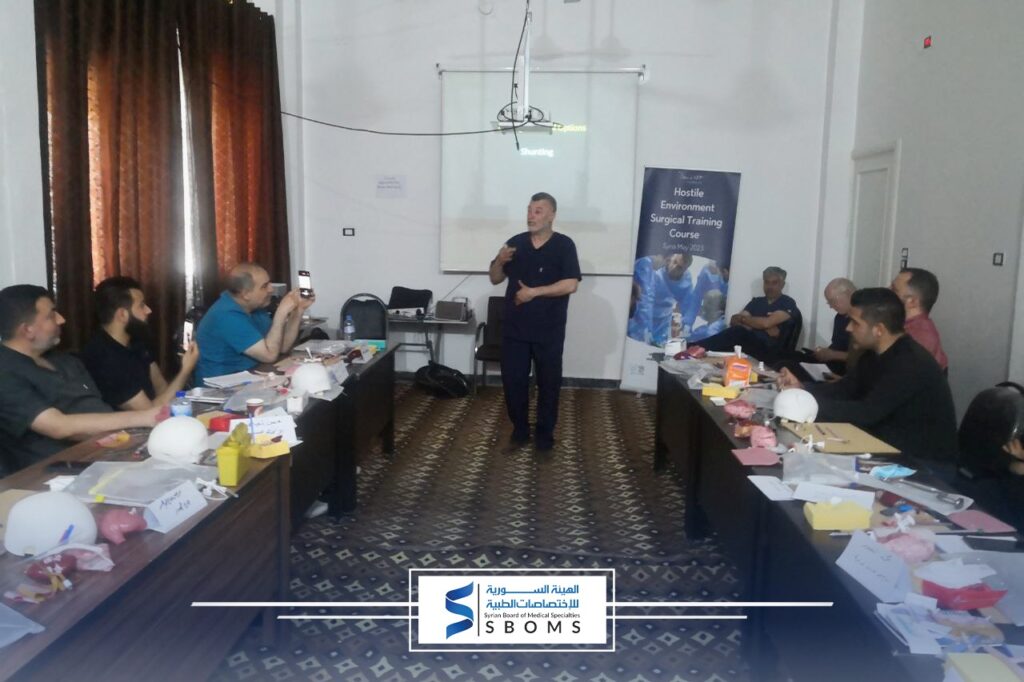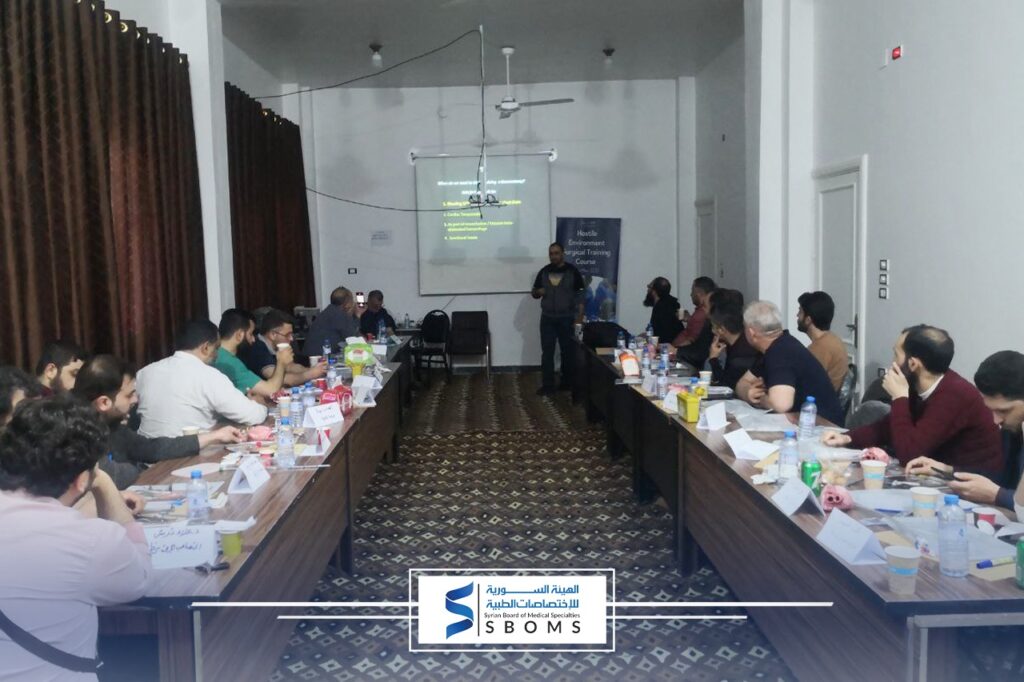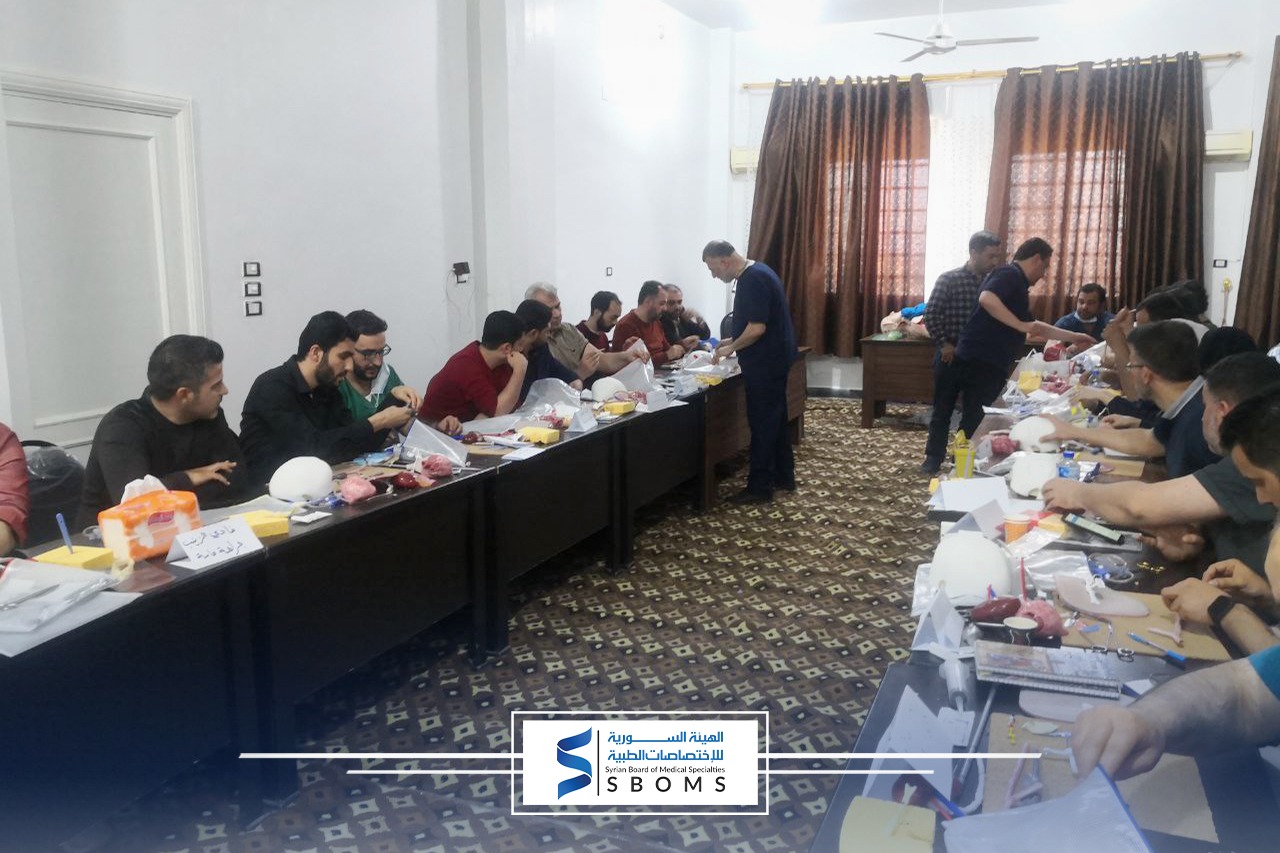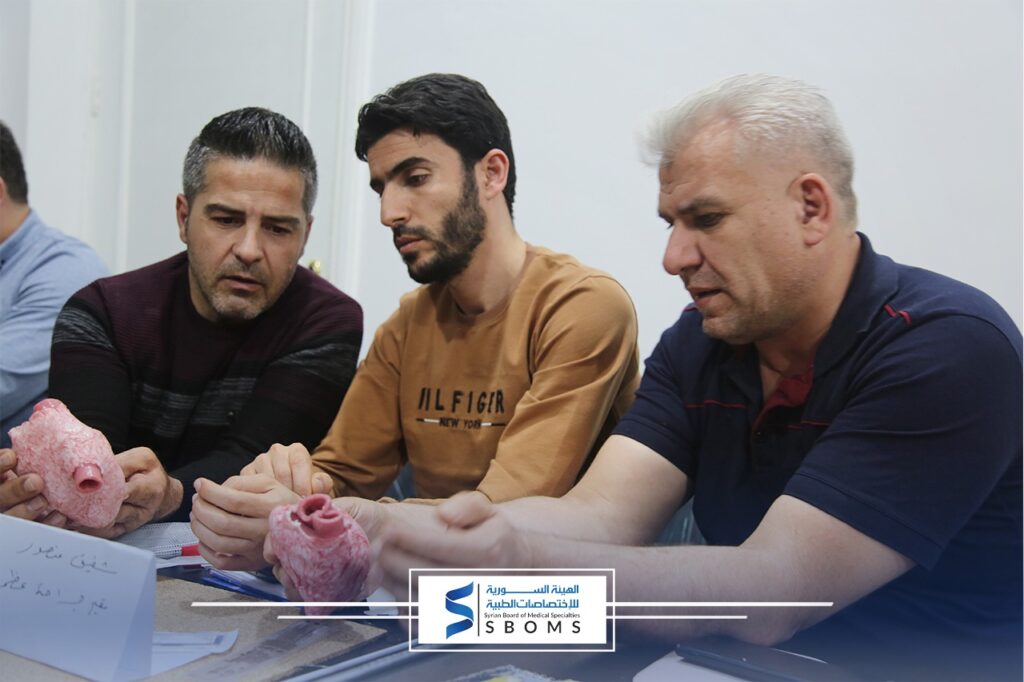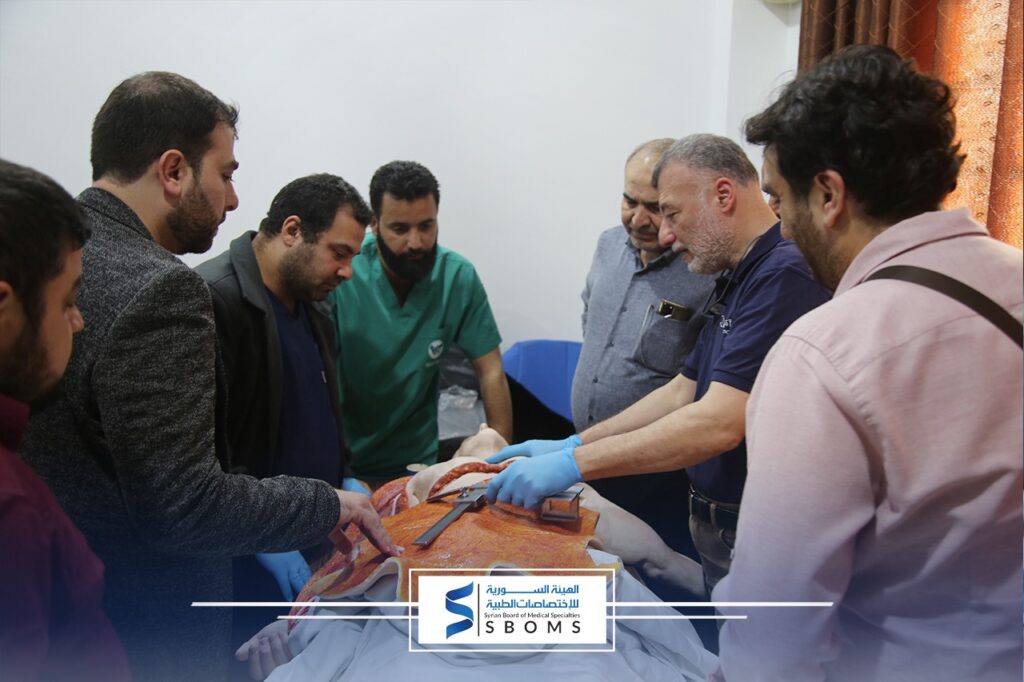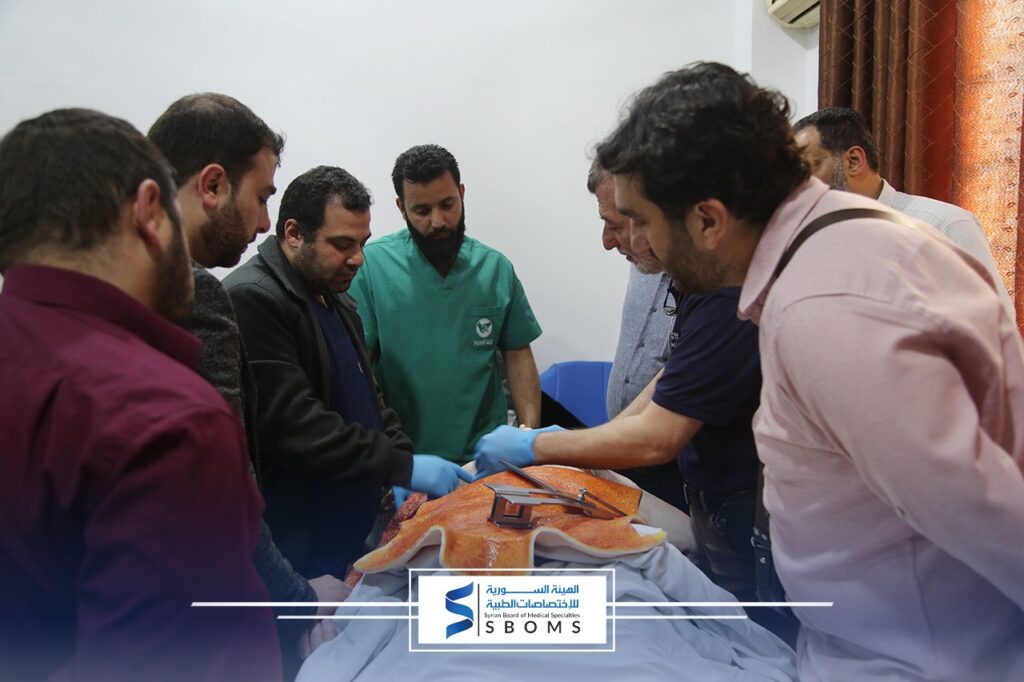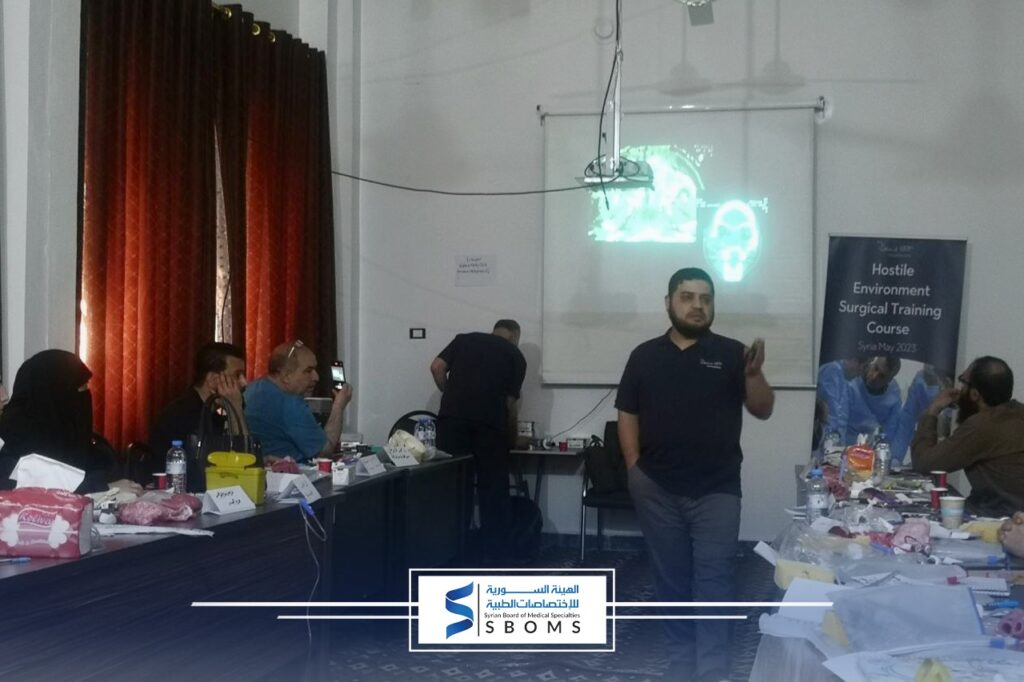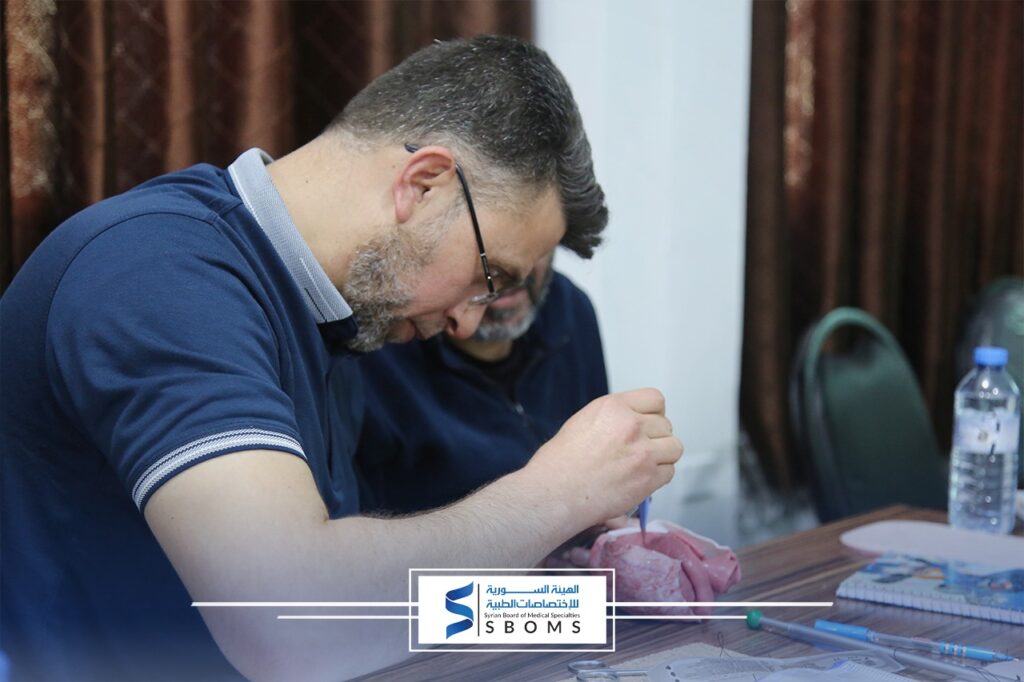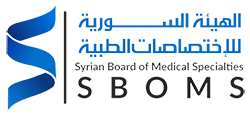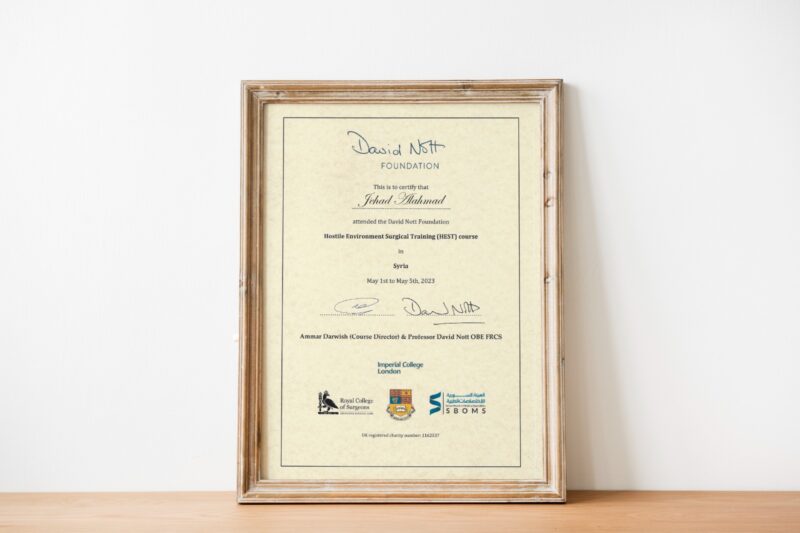The David Nott Foundation (DNF), in cooperation with the Syrian Board for Medical Specialties (SBOMS), completed the “Hostile Environment Surgical Training” (HEST) Surgical course, which was held over five days for the first time in Aqrabat Surgical Hospital.
30 surgeons and surgical residents from various surgical specialties in the Syrian Board for Medical Specialties, from 9 training hospitals in northwestern Syria, participated in the course. This course was designed to prepare surgeons to work in conflict and disaster areas around the world. It is designed to train these Surgeons on life and limb saving operations and Surgical procedures starting with basic first aid to advanced surgical techniques in trauma management.
This training will also enable the surgeons to save lives and reduce the damage from severe and life-threatening injuries. The course is held in a simulated environment using high-quality training human size manikin and models simulating the human organs covering most surgical specialties.
This course is accredited by both Imperial college London and the Royal College of Surgeons of England in addition to the David Nott Foundation.
The great achievements of this training where:
- Contribution of ten Syrian surgeons in delivering the course and training the candidates in Arabic, these surgeons are also senior supervisors at SBOMS. These trainers have been trained previously and were officially accredited as trainers by the David Nutt Foundation. Seven new doctors have also been approved for training in future HEST courses in Syria.
- The training targeted a number of medical specialists and residents in surgical specialties who did not attend the training in the past due to their inability to enter Turkey
This mission also involved performing complex and unique surgical operations in Aqrabat hospital and in collaboration with Action for Humanity. These surgical operations where for patients with complex Orthopaedic and plastics injuries from the war and after the earthquake. This involved performing more than 80 reconstructive and plastic operations by the surgical delegation of the mission also training local surgeons on performing these operations.
It is worth mentioning that this training is followed by bi-weekly meetings in the form of webinars with trainees and trainers, during which trauma cases performed by surgeons around the world are discussed and aim to provide advice and support for new surgeons in war zones and areas of natural disasters.
